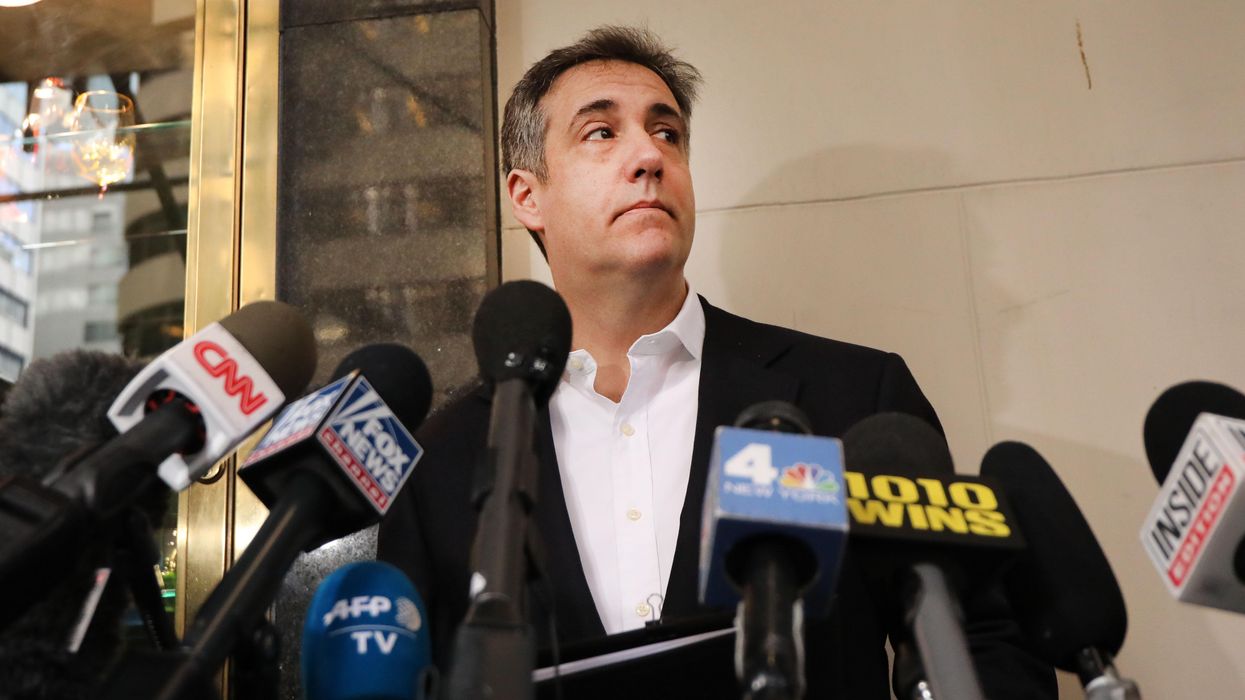Solomon is the senior digital strategist at Next Level Studios, a legal marketing firm, and an adjunct management professor at McGill University in Montreal.
The question that remains on everyone's mind is whether the post-presidential impeachment trial of Donald J. Trump is constitutional.
Of course it is.
In a 14-page memo released last week, lawyers for Trump argue, among many other things, that the Senate trial beginning Tuesday is an egregious constitutional overreach and that the Senate has no jurisdiction over Trump because he currently holds no public office from which he can be removed.
This is a serious logical stretch and even a more tenuous legal one.
Trump was impeached by the House while he was still the president. The acts and omissions that led to his being charged all occurred while he was in office. The Senate proceedings are simply a timely continuation of this fair process that is actually empowered by the Constitution. To be crystal clear, there is nothing happening that is unconstitutional.
What is actually and critically important is how the Senate will conduct the trial.
The process will be historically good political theater. With a Senate tied at 50 Democrats and 50 Republicans, the chances of getting to an actual conviction are somewhere between tiny and small — even with a few Republican senators looking likely to vote to convict Trump of "incitement of insurrection," the storming of the Capitol on Jan. 6. Remember that the bar is set high, with a two-thirds majority required. It just seems too unlikely for this to happen, though the past five years should have taught us that political prognostication is a wicked game.
So what's the wild card here? What might actually create a situation so politically bad for the GOP that enough members would have to even begrudgingly cross the line and vote in favor of conviction, which would then very likely lead to a second vote barring Trump from holding public office again? Witnesses.
This is the fight that will begin to be played out in traditional and social media cycles. Watch for the nuance in the arguments as to why witnesses should or should not be called. It's going to be fascinating stuff.
The Democrats have wanted to call witnesses. Why not? They feel that enough witnesses will emerge to strengthen their impeachment case. The Democrats feel that the Trump defense team is questionable at best — more of a team of B players rather than Grade A lawyers. The strength and depth of the legal team is critically important. They need to be reactive in real time during the trial but they also need to be proactive, able to anticipate the next move from the House impeachment managers. The key Democratic leaders feel that there is no evidence yet that the previous president's team will be terribly skilled at doing this.
Strategically, this opens the opportunity for blockbuster witnesses to come in with damaging evidence powerfully presented. While there are many who might be called to testify should witnesses be allowed, perhaps none would be more damaging than the former president's former lawyer, Michael Cohen.
Just last week, Cohen said that he would put the "nail in the coffin" at the trial if given the opportunity to testify. Unless we believe this to be all palaver, Cohen could be the kind of explosive witness able to sway votes.
The GOP doesn't want any witnesses and who can blame them? The goal of the vast majority of Republicans in the Senate is to make this all go away. Clearly, even the most ardent Trump supporters simply want the Senate trial to disappear as quickly as possible. A carbon copy of the first Trump impeachment trial, only a year ago, would be ideal for them. Fast and not even close.
GOP Sen. Lindsay Graham of South Carolina says that allowing witnesses at trial would be tantamount to "opening a Pandora's box," which is actually a prescient observation.
As the Greek myth goes, Pandora's box was actually a jar. Pandora opened this jar left in her care expecting it to be a wonderful gift. Instead, it contained sickness, death and many other unspecified evils which were then released into the world. Hence the opening of a Pandora's box today focuses only on the effect of the jar's opening.
But, again, Pandora thought she was opening a present. She had no intent to open a jar that would cause a literal world of problems. So perhaps Graham is right. Allowing witnesses in the Senate impeachment trial could be opening the box Pandora had intended to.
The Democrats have nothing to fear by calling witnesses. Worst case scenario is that their witnesses are a total flop. Unlikely, but if this is the case, their efforts to impeach would certainly be no worse off than if they weren't allowed to call witnesses and the trial proceeds quickly to a losing vote.
What the GOP has to lose by calling witnesses may be the entire trial. Who knows what evils are brewing within the jar? Would there be multiple witnesses such as Mr. Cohen with the clear intent and perhaps the knowledge to hammer in that final nail? Does the GOP already know that these witnesses exist and are ready to come forward or will they be truly surprised at the scope and depth of what the jar will reveal if opened?
That's the thing with both mythology and witnesses in an impeachment trial. You never know what you're going to get until it happens.
Under a draft agreement between Majority Leader Chuck Schumer and Minority Leader Mitch McConnell that circulated Monday, the prospect of witnesses looks unlikely. The former president was asked to take the stand by the House managers, or prosecutors, he has flatly declined the offer to be the most dramatic and unpredictable star witness possible.



















Trump & Hegseth gave Mark Kelly a huge 2028 gift